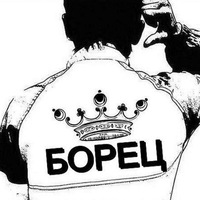
Почему была борьба россии и франции за лидерство в европе
 0
0
 0
0
Ответы на вопрос
 Внимание! Ответы на вопросы дают живые люди. Они могут содержать ошибочную информацию, заблуждения, а также ответы могут быть сгенерированы нейросетями. Будьте внимательны. Если вы уверены, что ответ неверный, нажмите кнопку "Пожаловаться" под ответом.
Внимание! Ответы на вопросы дают живые люди. Они могут содержать ошибочную информацию, заблуждения, а также ответы могут быть сгенерированы нейросетями. Будьте внимательны. Если вы уверены, что ответ неверный, нажмите кнопку "Пожаловаться" под ответом.

 0
0
 0
0

Background on the Struggle for Leadership in Europe between Russia and France
The struggle for leadership in Europe between Russia and France has its roots in historical, geopolitical, and ideological factors. Throughout history, both countries have sought to assert their influence and establish themselves as dominant powers on the European continent. This rivalry has been shaped by various events and circumstances, including conflicts, alliances, and shifts in power dynamics.
Historical Factors
1. Napoleonic Era: The struggle for leadership between Russia and France can be traced back to the Napoleonic era in the early 19th century. Napoleon Bonaparte's expansionist ambitions and his invasion of Russia in 1812 created a deep-seated animosity between the two nations. Russia, under the leadership of Tsar Alexander I, played a crucial role in defeating Napoleon and his forces, which further solidified Russia's position as a major power in Europe.
2. Crimean War: The Crimean War (1853-1856) marked another significant chapter in the struggle for leadership in Europe between Russia and France. France, along with Britain and the Ottoman Empire, formed an alliance against Russia, aiming to curb its influence and territorial expansion. The war ended with Russia's defeat and highlighted France's growing power and influence in Europe.
Geopolitical Factors
1. Territorial Ambitions: Both Russia and France have historically sought to expand their territories and influence in Europe. Russia's vast landmass and strategic location have made it a key player in European geopolitics. France, on the other hand, has a long history of seeking to establish itself as a dominant force on the continent, often through military conquests and alliances.
2. Balance of Power: The struggle for leadership between Russia and France can also be understood in the context of the balance of power in Europe. As major powers, both countries have sought to maintain a balance of power that aligns with their interests and prevents any single nation from dominating the continent. This has often led to competition and rivalry between Russia and France.
Ideological Factors
1. Political Systems: Russia and France have historically represented different political systems and ideologies. Russia's autocratic rule and its role as the center of Orthodox Christianity have shaped its approach to leadership in Europe. France, on the other hand, has been associated with republican ideals, democracy, and the promotion of human rights. These ideological differences have contributed to the rivalry between the two nations.
2. Ideological Influence: Both Russia and France have sought to spread their respective ideologies and exert influence over other European nations. Russia's promotion of pan-Slavism and its support for Slavic nations in Eastern Europe have often clashed with France's republican ideals and its support for democratic movements. This ideological competition has fueled the struggle for leadership between the two countries.
Conclusion
The struggle for leadership in Europe between Russia and France is a complex and multifaceted phenomenon. It encompasses historical, geopolitical, and ideological factors that have shaped the relationship between the two nations. From the Napoleonic era to the present day, this rivalry has been characterized by conflicts, alliances, and shifts in power dynamics. Understanding the historical context and the underlying factors can provide insights into the ongoing struggle for leadership between Russia and France in Europe.
 0
0
 0
0
Топ вопросов за вчера в категории История
Последние заданные вопросы в категории История
-
Математика
-
Литература
-
Алгебра
-
Русский язык
-
Геометрия
-
Английский язык
-
Химия
-
Физика
-
Биология
-
Другие предметы
-
История
-
Обществознание
-
Окружающий мир
-
География
-
Українська мова
-
Информатика
-
Українська література
-
Қазақ тiлi
-
Экономика
-
Музыка
-
Право
-
Беларуская мова
-
Французский язык
-
Немецкий язык
-
МХК
-
ОБЖ
-
Психология
-
Физкультура и спорт
-
Астрономия
-
Кыргыз тили
-
Оʻzbek tili





















